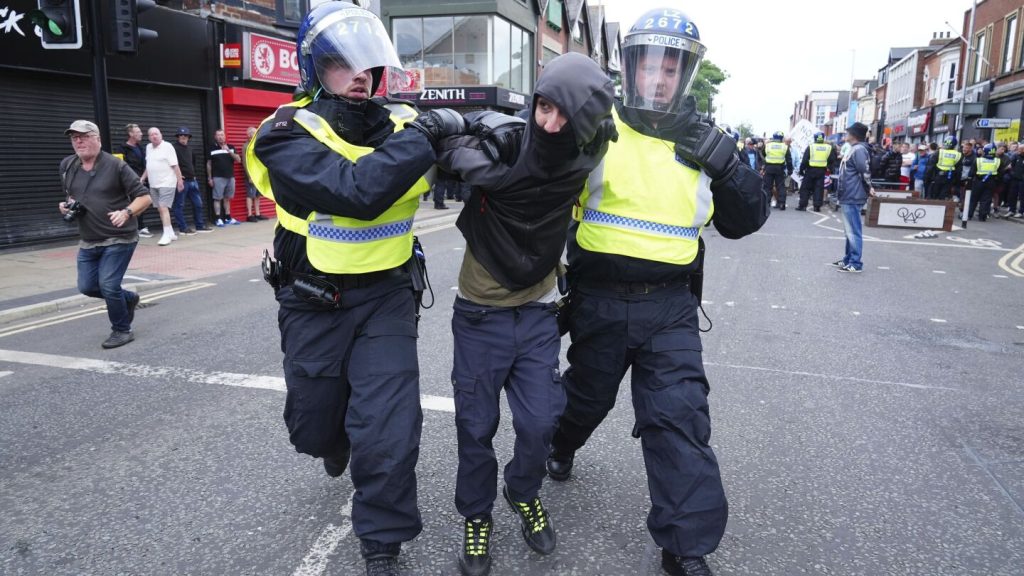The first person to be charged with rioting in connection with the violent unrest that swept across the U.K. following a knife attack that killed three children was a 15-year-old boy. The teen, who cannot be identified for legal reasons, appeared at South Tyneside Youth Court and had pleaded guilty to charges of violent disorder and burglary. The riots initially erupted on July 30 after misinformation spread online about the suspect in the attack being a Muslim asylum-seeker. This led to protests, some fueled by far-right activists, attacking a mosque in Southport where the girls were killed, which then spread to multiple cities and towns across the country. Some of the worst unrest occurred around hotels housing asylum-seekers, with protesters throwing bricks, storming hotels, and clashing with riot police.
Hundreds of people have been arrested and charged since the riots began, but the 15-year-old boy was the first to be charged with rioting, which is a more serious offense carrying a maximum penalty of 10 years in prison. In addition to the teen, other individuals involved in the violence have also faced legal consequences. A man in Manchester was sentenced to three years and two months for assaulting a Black man during disorder in the city, while another man who threw bricks at police outside a hotel housing asylum-seekers was sentenced to two years and 10 months. Furthermore, a 26-year-old man who used social media to encourage people to torch hotels that house asylum-seekers was sentenced to more than three years in prison. These sentences indicate the seriousness with which the authorities are treating the unrest and its perpetrators.
The situation highlights the volatile nature of social unrest and the speed at which violence can escalate, particularly in cases where misinformation and inflammatory rhetoric are involved. The initial spread of misinformation around the suspect in the knife attack being a Muslim asylum-seeker fueled tensions and led to widespread protests and violence across the U.K. The targeting of asylum-seekers and the riots that ensued demonstrate the potential for tensions related to immigration and refugees to spark broader social unrest, with far-reaching consequences for communities and individuals involved. The legal actions taken against those involved in the violence send a message that such behavior will not be tolerated and will be met with serious consequences.
The riots and violence that followed the knife attack not only had immediate consequences but also highlighted underlying issues related to immigration, refugee policies, and social tensions within the U.K. The targeting of asylum-seekers in the unrest points to deeper societal divisions and prejudices that can be exploited by those seeking to incite violence and chaos. By addressing the root causes of such tensions and working to promote understanding and tolerance, authorities can help prevent similar incidents in the future. The legal actions taken against those involved in the violence serve as a deterrent and a warning that such behavior will not be tolerated and will be met with severe consequences. It is crucial for communities and authorities to work together to address underlying issues and promote peace and unity moving forward.


